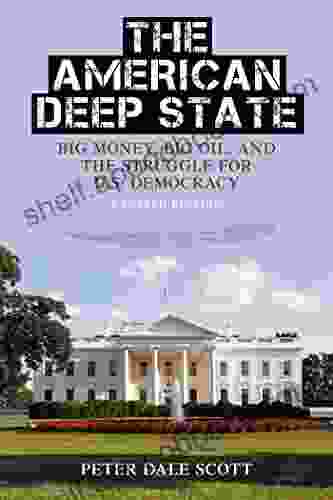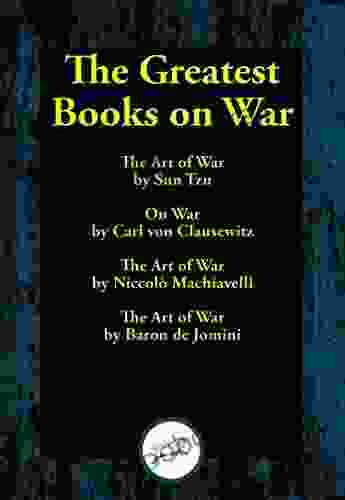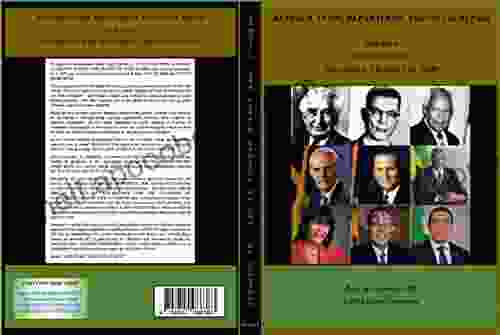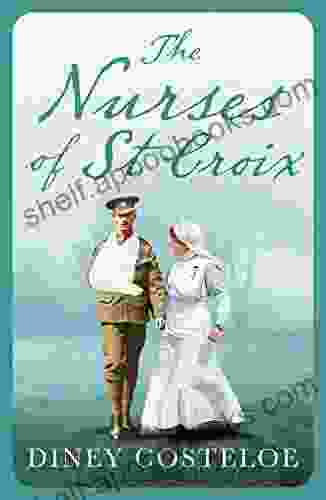The Greatest On War: Unraveling the Secrets of Military Strategy

War, a tragic but enduring aspect of human history, has been studied and analyzed by scholars and military leaders alike for centuries. Among the vast body of literature on the subject, one work stands out as a timeless masterpiece: The Greatest On War by the Prussian general and military theorist Carl von Clausewitz. First published in 1832, this profound treatise has had a profound impact on military strategy and continues to be studied by military professionals and historians today.
4.4 out of 5
| Language | : | English |
| File size | : | 4559 KB |
| Text-to-Speech | : | Enabled |
| Screen Reader | : | Supported |
| Enhanced typesetting | : | Enabled |
| Print length | : | 1143 pages |
In this article, we will delve into the wisdom of The Greatest On War, exploring the key principles that have guided military leaders to victory throughout history. We will examine Clausewitz's insights into the nature of war, the role of chance and uncertainty, and the importance of understanding the enemy's intentions and capabilities. By understanding these principles, we can gain a deeper appreciation for the complexities of war and the challenges faced by those who wage it.
The Nature of War
Clausewitz famously defined war as "an act of violence intended to compel our opponent to fulfill our will." This definition captures the essential nature of war as a struggle between two or more parties who seek to impose their will on each other through the use of force. Clausewitz emphasized that war is not merely a matter of military operations, but a complex social and political phenomenon that involves the entire nation.
According to Clausewitz, war is not a rational act, but a product of human passions and emotions. He argued that war is often driven by fear, anger, and the desire for revenge. These emotions can lead to irrational decision-making and make it difficult to achieve a clear and decisive victory.
Clausewitz also recognized the importance of chance and uncertainty in war. He argued that no matter how well-prepared a military force may be, there will always be unforeseen events that can affect the outcome of a battle or campaign. Clausewitz believed that it is impossible to completely eliminate uncertainty in war, but that it can be managed through careful planning and decision-making.
The Role of Strategy
Clausewitz believed that strategy is the key to success in war. He defined strategy as "the art of using all available means to achieve a desired end." According to Clausewitz, strategy involves the planning and execution of military operations, but it also encompasses a broader understanding of the political, economic, and social factors that can influence the outcome of a war.
Clausewitz argued that a successful strategy must be based on a clear understanding of the enemy's intentions and capabilities. He believed that it is essential to study the enemy's history, culture, and military doctrine in Free Download to develop a strategy that will exploit their strengths and weaknesses. Clausewitz also emphasized the importance of adapting strategy to the changing circumstances of war. He argued that no plan can survive contact with the enemy, and that commanders must be prepared to adjust their strategy as needed.
The Importance of Leadership
Clausewitz believed that leadership is essential to success in war. He argued that a good leader must be able to inspire their troops, make sound decisions under pressure, and adapt to the changing circumstances of war. Clausewitz also emphasized the importance of moral courage, which is the ability to stand up for what is right, even in the face of danger.
According to Clausewitz, a good leader must also be able to understand the psychology of their troops. He believed that it is important to know what motivates soldiers and how to keep them motivated in the face of adversity. Clausewitz also emphasized the importance of communication, both between leaders and their subordinates and between different units within a military force.
The Greatest On War is a timeless classic that has had a profound impact on military strategy for nearly two centuries. Clausewitz's insights into the nature of war, the role of chance and uncertainty, and the importance of strategy and leadership are still relevant today. By understanding these principles, we can gain a deeper appreciation for the complexities of war and the challenges faced by those who wage it.
The Greatest On War is a must-read for anyone who is interested in military history, strategy, or leadership. It is a complex and challenging work, but it is also a rewarding one. Clausewitz's insights into the nature of war are as relevant today as they were when he first wrote them down, and they continue to offer valuable lessons for military leaders and historians alike.
4.4 out of 5
| Language | : | English |
| File size | : | 4559 KB |
| Text-to-Speech | : | Enabled |
| Screen Reader | : | Supported |
| Enhanced typesetting | : | Enabled |
| Print length | : | 1143 pages |
Do you want to contribute by writing guest posts on this blog?
Please contact us and send us a resume of previous articles that you have written.
 Book
Book Novel
Novel Page
Page Chapter
Chapter Text
Text Story
Story Genre
Genre Reader
Reader Library
Library Paperback
Paperback E-book
E-book Magazine
Magazine Newspaper
Newspaper Paragraph
Paragraph Sentence
Sentence Bookmark
Bookmark Shelf
Shelf Glossary
Glossary Bibliography
Bibliography Foreword
Foreword Preface
Preface Synopsis
Synopsis Annotation
Annotation Footnote
Footnote Manuscript
Manuscript Scroll
Scroll Codex
Codex Tome
Tome Bestseller
Bestseller Classics
Classics Library card
Library card Narrative
Narrative Biography
Biography Autobiography
Autobiography Memoir
Memoir Reference
Reference Encyclopedia
Encyclopedia Valerie Polakow
Valerie Polakow Saffron A Kent
Saffron A Kent Edward Kamens
Edward Kamens Doug Kuntz
Doug Kuntz Nathan Eckstrand
Nathan Eckstrand Donna Shea
Donna Shea Katharine Goodland
Katharine Goodland Meredith Colby
Meredith Colby Doma Mahmoud
Doma Mahmoud Francis Fukuyama
Francis Fukuyama Douglas Thomas
Douglas Thomas Gina Azzi
Gina Azzi Kiana Azizian
Kiana Azizian Lynne Marshall
Lynne Marshall Kate Mcmullan
Kate Mcmullan Dov S Zakheim
Dov S Zakheim Dick Hebdige
Dick Hebdige Pam Lintott
Pam Lintott Tiago Lameiras
Tiago Lameiras Mercedes Franco
Mercedes Franco
Light bulbAdvertise smarter! Our strategic ad space ensures maximum exposure. Reserve your spot today!

 Connor MitchellUnveiling the Secrets of Alabama Crimson Tide Football: A Comprehensive Guide...
Connor MitchellUnveiling the Secrets of Alabama Crimson Tide Football: A Comprehensive Guide... Ryan FosterFollow ·12k
Ryan FosterFollow ·12k Edison MitchellFollow ·6k
Edison MitchellFollow ·6k Craig BlairFollow ·13.4k
Craig BlairFollow ·13.4k Joshua ReedFollow ·4.9k
Joshua ReedFollow ·4.9k David Foster WallaceFollow ·19.9k
David Foster WallaceFollow ·19.9k J.D. SalingerFollow ·11.8k
J.D. SalingerFollow ·11.8k Mikhail BulgakovFollow ·14.1k
Mikhail BulgakovFollow ·14.1k Ted SimmonsFollow ·6.8k
Ted SimmonsFollow ·6.8k

 Larry Reed
Larry ReedBig Money, Big Oil, and the Struggle for Democracy
By [Author's Name] In this...

 Jackson Blair
Jackson BlairUnleash Your Creativity with The Ultimate Guide to Cricut...
Welcome to the extraordinary world of Cricut...

 Glen Powell
Glen PowellTo the American Public: Uncovering the Hidden Truths and...
An Incisive and Urgent Call to...

 Bryce Foster
Bryce FosterUltimate Guide to Starting a Mini Food Truck Business:...
: Embracing the Mobile Culinary...

 John Steinbeck
John SteinbeckHow To Make Different Styles Of Flute From Around The...
Embark on a...
4.4 out of 5
| Language | : | English |
| File size | : | 4559 KB |
| Text-to-Speech | : | Enabled |
| Screen Reader | : | Supported |
| Enhanced typesetting | : | Enabled |
| Print length | : | 1143 pages |












